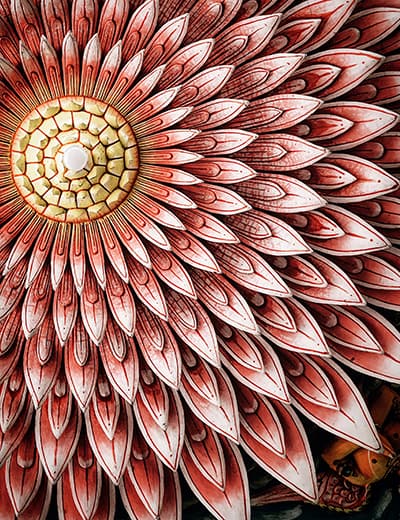
NARRATIVES
RISING WITH THE SUN IN NIMAJ
South India
Indians wake up early, often as the sun rises, to pray to the gods for a favourable day and enjoy the few hours where there is no need to hide in the shade. My alarm clock rang at 6 am. I had inquired the day before and learned that a good time to be out was around 6.20, which left me a few minutes for a stimulating cold shower. I slipped into a long, striped tunic and white linen pants and preferred to leave my sunglasses in the room, trying to avoid the cliché of the intrusive white woman.
At first, the street was completely empty, the perfect setting for a western movie. Early birds opened their shops at dawn and calmly sat there reading the newspaper and drinking strong cups of chai. Everyone I encountered bowed slightly, touching their heart with their right hand or murmuring a shy ‘Namaste’. For once, the deafening noise of car horns was absent, but bird songs were twice as loud, punctuated by a peacock's screech, the most natural music for ears to absorb.


I stopped in front of a pink house before which a young lady applied red powder on Lord Ganesha’s idol. She caught my attention and I took a careful look at her subtle movements. As our eyes met, she paused for a second, and with the universal gesture of the hand, she invited me in. I left my shoes outside and entered the main courtyard of her home.
I saw her elder brother still sleeping on his bed and another one in his school uniform, washing his face. He stared at me, amazed, and laughed. After showing me the centuries-old well in their house, the young woman took me to the kitchen where her mother was making chai. They offered me a cup that I was happy to accept despite my aversion to milk. It was my chance to bask in the warmth of their family. Sumitra, the mother, asked her younger son to bring a plastic chair for me to sit on comfortably, as she served me chai. She then sat on the floor next to me with her younger daughter in white and blue school uniform. Time had come for the daily braiding session. With her expert hands, Sumitra pulled, turned, combed, to form two perfectly symmetrical tight braids.

The young girl took advantage of a short break in the activity to gulp down two toasts that she first dunked in her milk tea. Her elder sister bustled around doing the dishes in the dark kitchen, while the elder brother only started to open his eyes. I did not understand a word of all the exchanges in Hindi, but I felt welcome and comfortable.
The young son kept joking around, laughing and smiling, obviously making fun of my presence in their home. I stared at him, calling him “the joker”, which made everybody smile and the mother nodded before pointing at him, and repeating that he was one “naughty boy”. We all burst out laughing.
Then, the young girl put the final touch to her uniform: a large red tilak on her forehead. She then came closer to me and put some on my forehead as well, a sign of hospitality. I felt blessed. The tilak had been applied on me many times during my travels, but this one was different, it came from the heart of this family. As I left them to continue on my morning walk, I grinned from ear to ear, comforted by such kindness, touched by such moments of human grace.



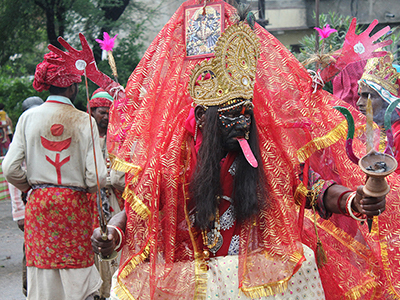
Gauri, a dance drama
They stamp their feet rhythmically. Mouths shout words, instruments loudly answer to them, preparing the entrance of today’s celebrities...
Narrative • North India
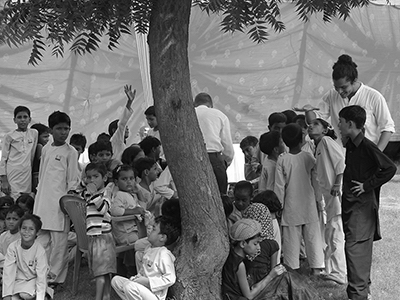
Among the Rajputs
The scene is set in Shekhawati, towards the end of the month of July. On the occasion of an excursion...
Narrative • North India
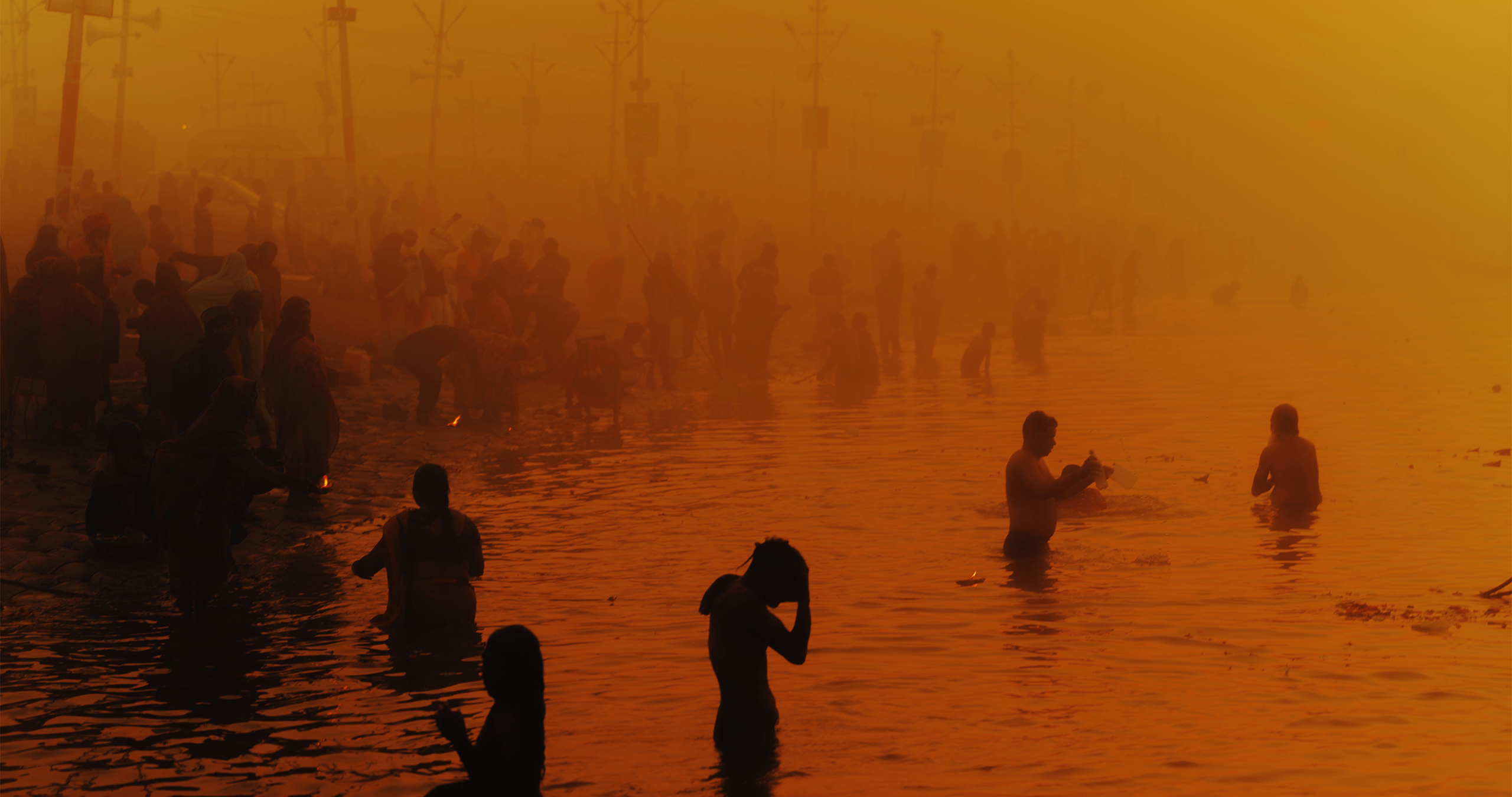
One Journey, Four Perspectives
A closer look at the road trip that we undertook along the Ganges with four photographers to showcase the versatility of Hasselblad's X1D cameras...
Behind-The-Scenes • North India
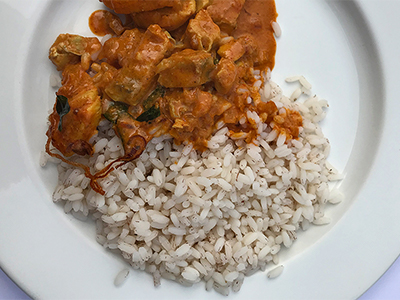
Aromas that the Ships brought
This journey trails the coastlines of the Arabian Sea, to discover the rich flavours and fragrances that have arrived and thrived here...
Bespoke Journey • West India
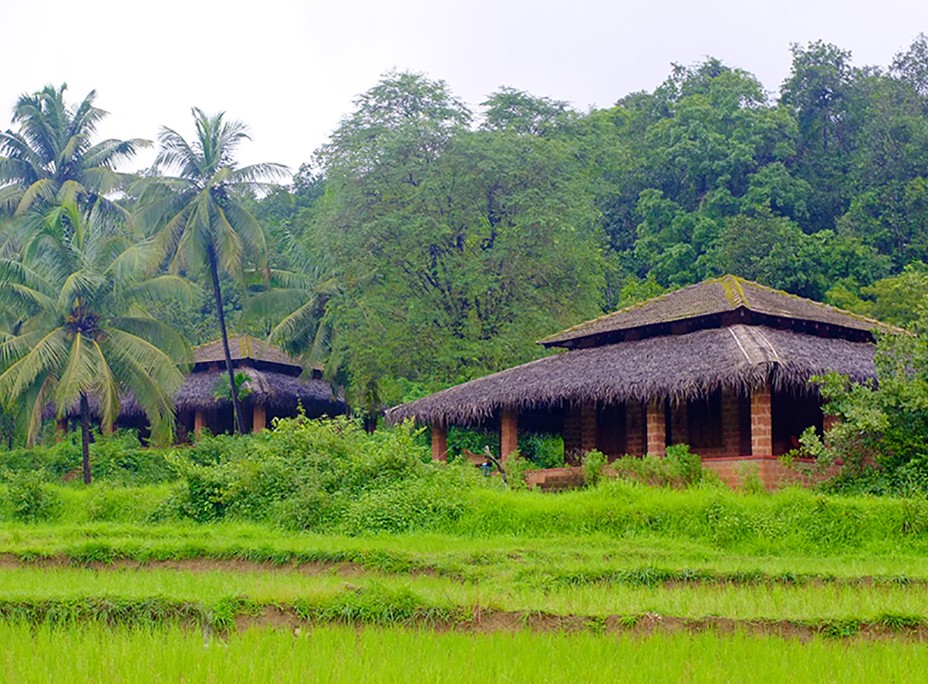
VanaVasa
VanaVasa is a Sanskrit word that translates to forest stay, which speaks volumes about this beautiful...
Hotel Guide • South India

Paradise Must Be Gained
Far from the maddening crowd, out of the beaten track, a journey to the Andaman brings the traveller to the end of...

